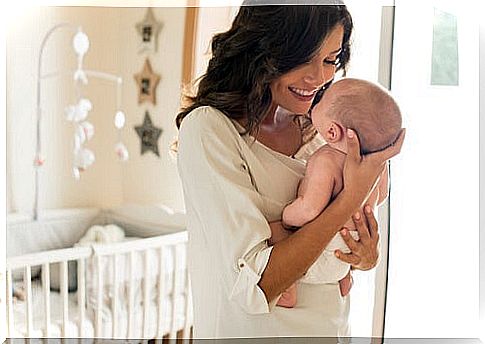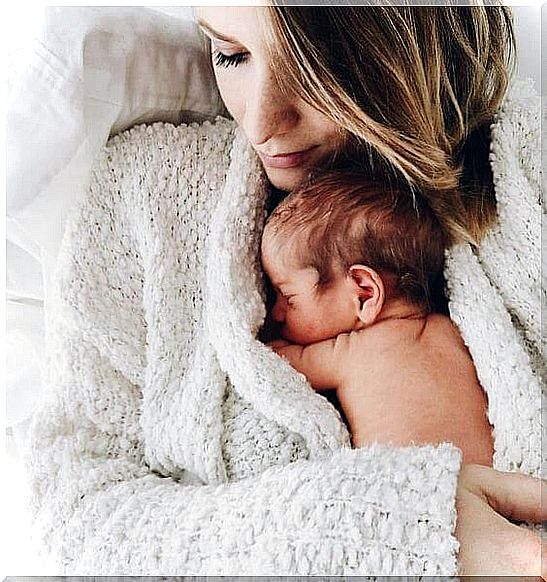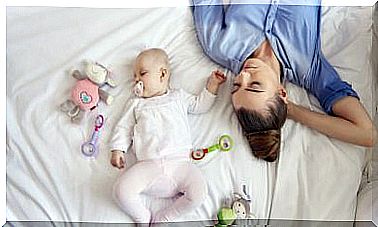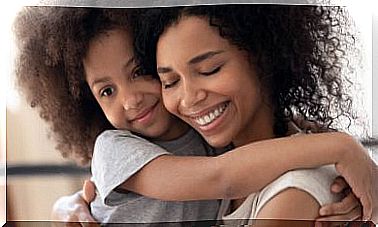Why Does A Baby Cry?

The crying of babies is a topic that worries parents a lot, especially since it is a very common behavior in the little ones. The big question is: why does a baby cry?
Although we want a single answer, the truth is that a baby can cry for different reasons. You may be hungry, hot or cold. You may experience some discomfort or discomfort such as a full diaper. Perhaps you have been startled by a noise or simply because you want to cry.
It is very common that when laying the baby in his bassinet, he cries; that when you pick him up and feed him, he calms down and that when you put him back down, he starts crying again. It is in this type of situation that the first emergency call to the pediatrician occurs:
- Doctor, something’s wrong with the baby! Are you hungry or in pain!
- Why?
- Because he falls asleep on his chest and, when I put him to bed, he starts crying; I put it back on my chest and it goes back to sleep, and so on all night …
Actually, the baby has no problems; he is simply not fit to sleep in the bassinet. Here we explain why a baby cries.

Why does a baby cry the first few days?
The baby remained nine months inside the mother’s womb, contained, floating in warm liquid. Without feeling hungry, thirsty, cold or hot, listening to the voice of the mother and her heartbeat amplified.
Suddenly, and without asking his permission, we take him out of there and he begins to feel hot, cold, colic, noises, hunger … Thus, when they place him in the bassinet on cold, hard or wrinkled sheets, he does not recognize the situation, he feels unpleasant and cries .
Now, when they hold him, he experiences a sensation similar to when he was in the womb and calms down. This does NOT mean that you are spoiling yourself, but simply that you are able to differentiate well-being from displeasure.
The first three months of the newborn’s life are governed by the pleasure principle. If you feel pleasure you can feed, sleep, mature, develop and grow. Instead, the displeasure generates an internal tension that he cannot bear and that makes him cry.
A crying baby under three months does not have the ability to change this unpleasant situation. And, therefore, they will continue to cry without interruption until their caregivers change the situation that caused the crying.
The human newborn is the most helpless animal born in nature. For example, a giraffe at birth falls from two meters high, gets up and runs away so that a predator does not reach it. In contrast, a human baby is totally dependent on the parents.
Thus, during the first three months of life the pleasure principle teaches us your needs and preferences. What things give a baby pleasure ?: everything known. What things make you unpleasant ?: all the unknown. Being in mommy’s arms is the closest thing to being in the womb: the baby feels warm, contained, rocked and cared for.

What if it spoils?
Spoiling is a complex intellectual association. It consists in thinking: if I cry, they take me in their arms, something that I like a lot; then I’m going to cry more. If a baby under three months cries, it must be in your arms. It is proven that the longer we let him cry, the longer he will cry.
Babies do not get used to new or unfamiliar situations by crying, but they do it after having been in that situation many times, calm and accompanied. Thus, the baby will stop crying in the bassinet when it recognizes it and will do so after having been lying in it, distracted for many times in a row. Letting him cry can even generate a rejection of the bassinet in the child.
Finally, it is important to keep in mind that what Sigmund Freud described as the pleasure principle, today is called exterogestation, the second pregnancy or external pregnancy by upbringing specialists. For this reason, newborns should be treated as if they were still in the womb: the greatest possible physical contact, love, warmth, care and permanent feeding.










